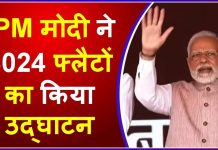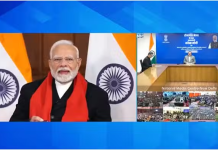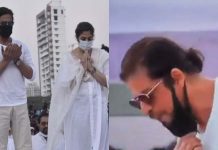Former Prime Minister Manmohan Singh on Tuesday brought to the centrestage the 1992 demolition of Babri mosque at Ayodhya, saying it was a “sad day” for secular republic of India.
Delivering the second memorial lecture of Left stalwart and CPI leader AB Bardhan, Singh said Babri mosque demolition was a “traumatic” experience.The country’s leadership came in for criticism.
The subject of the lecture was “Secularism and Constitution” – a theme considered to be dear to the Communist veteran.
Although Singh is known for his matter-of-fact and to-the-point approach in his enunciations, many would conflate his reference of the demolition with Congress president Rahul Gandhi’s current pitch on being a devotee of Lord Shiva –acknowledged as chief destroyer in the pantheon of Hindu gods.
Also, Singh’s commisseration with the mosque’s demolition will be militated with saffron brigade’s thrust on building on Ram temple which it claims is “Ram Janmabhoomi” (site where Lord Ram was born).
He prefaced his speech saying that every civilised society is known and defined by the terms it offers to its minorities, especially its religious minorities. “The need to preserve and protect the Constiutional values, especially the rights of religious minorities, has currently become all the more imperative,” he added.
Singh said judiciary, media, election commission and political leaders have duties to protect secularism. The Armed Forces are known to be away from sectarian colours, and they should remain thus, he added.
Citing various Articles of the Constitution ensuring fundamental rights, the former PM made a mention of Article 352 that stipulates that no person sould be ineligible for inclusion in a special, electoral roll on grounds of religion, race, caste or sex.
He appreciated the Supreme Court’s Bommai judgment which enjoined upon State to accord equal treatment of all religions and religious sects, along with emphasis on religious tolerance.
But the salubrious secular ambience arising in the wake of Bommai judgment was shortlived due to the apex court’s (Justice JS Verma’s) “famous but controversial ‘Hindutva a way of life’ judgment”, he added. “This verdict had a decisive impact on the ongoing debate among the political parties about the principles and practices of secularism in our republic.”
“The judgment ended up making our political discourse somewhat lopsided; and, many believe that ‘there can be no doubt that the decision requires to be overruled'”, Singh added.
He said founding fathers of the Constitution had injected secularism and liberal ethos in the book even though the country was under the shadow of the torment and bloodbath of Partition. He lauded Mahatma Gandhi and country’ first Prime Minister Jawaharlal Nehru for upholding and strengthening secularism.
Nehru was of the firm belief that Muslims who consider India as their country must be protected.
Singh observed that fundamentalist forces assassinated Mahatma Gandhi because they could not tolerate his secular values of religious tolerance.














































